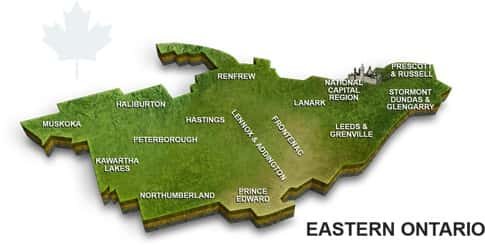Ottawa Construction News staff writer
It’s a massive undertaking – reviewing dozens of Ontario Municipal Board (OMB) appeals dating back to 2013 and sorting out which should be settled, and which need to go to adjudication.
Greater Ottawa Home Builders Association (GOHBA) Builder Developer Council (BDC) members, with help from lawyers and planning consultants, are taking on this daunting task now in preparation for a May 4 OMB prehearing conference to deal with the appeals for the Ottawa’s Official Plan Amendment (OPA) bylaws 150 and 180.
“The story is about the association protecting member’s interests and it is a complicated and convoluted task to do that,” says GOHBA president Josh Kardish.
The story started in 2013, when the city introduced “OPA 150”, with much prescriptive language and wording that caused concern for various developers and owners, many of whom are GOHBA members. Overall 30 appeals were filed, says Soloway Wright lawyer Ursula Melinz.
Some of these appeals resulted in an OMB decision that the city hadn’t properly completed its employment lands review and agriculture studies, putting everything on hold while the city completed that work. Ultimately, a revised set of official plan amendments (OPA 180) was introduced – but these provisions, too, had problems, resulting in another 15 appeals.
Of course, much has changed in the years since the first appeals were filed, said Melinz and Murray Chown, director of planning and development at Novatech, who has helped consult the association through the process. Some of the issues in the original appeals have been resolved and others have become moot.
As well, there have been changes in the city’s administration and its attitudes to the development process. In many cases, Kardish says, city planning officials are more receptive to a consultative rather than confrontational approach to planning and development issues.
Accordingly, GOHBA representatives expect much progress to be made in an extensive series of meetings ahead of the formal May 4 OMB pre-conference. The end-result will likely be a reduction in the number of appeals and a clearer definition of issues that truly need to be adjudicated at the full OMB level.
“We’re gearing up for the conference,” Chown says. “The parties and the boards will discuss the (appeals) list and various components and discuss dates for the various components of the hearings.”
The appeals are divided into eight components: Natural systems, mineral aggregates, employment, building height intensifications and design, urban expansion, rural servicing and agriculture.
While the OMB has been restructured under new provincial legislation into the less powerful Local Planning Appeal Tribunal, as these appeals pre-date the changeover, they will be decided under the old OMB rules, said Melinz. “We will probably not have hearing dates before 2019.”
Kardish is hopeful that the current process, and ongoing discussions with the city, will result in much less conflict as the city prepares for its next round of official plan amendments within the next year or two.







